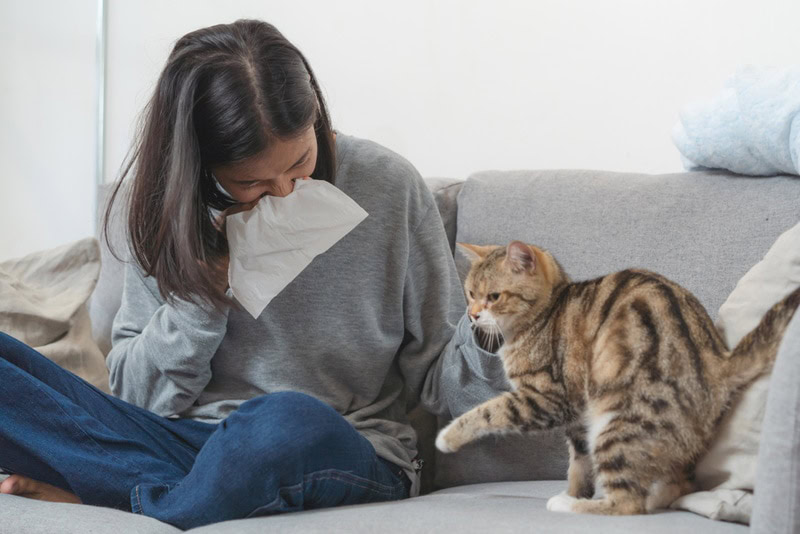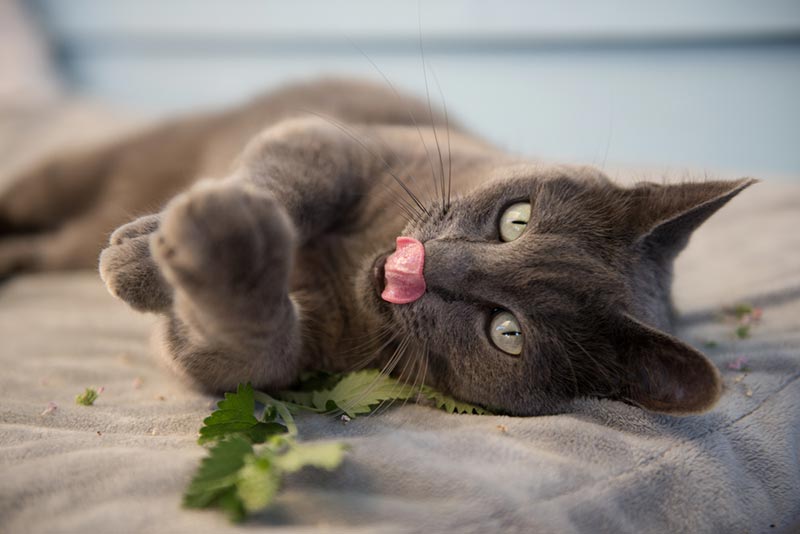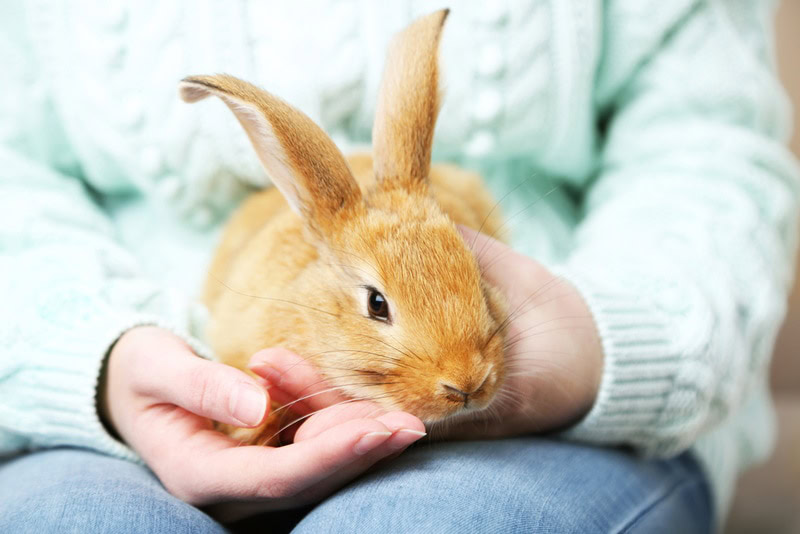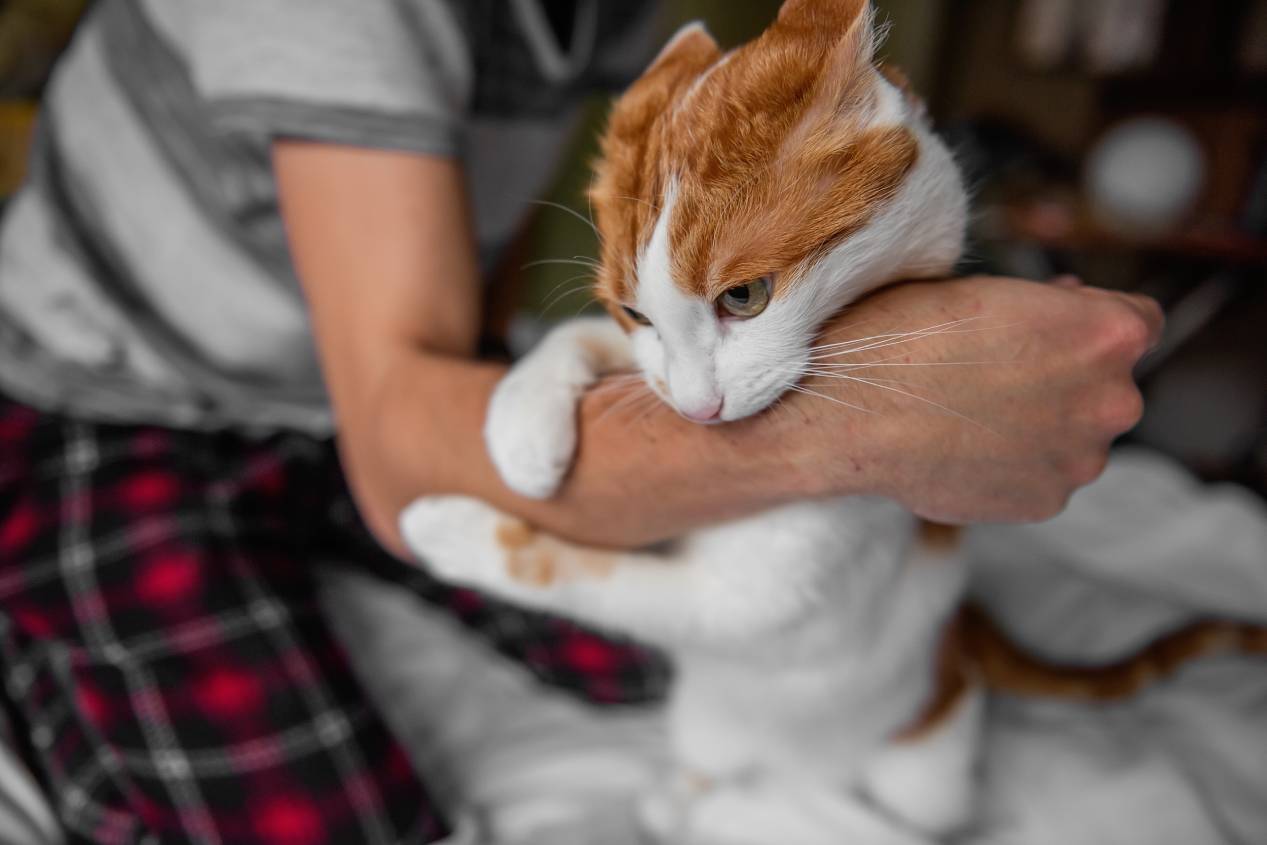Nothing can make a person feel more judged than when they burst out a sneeze, and their cat meows distastefully at them! Some cats may even hiss, attack, or run away from a sneezing human, while others will seem completely indifferent. Cats can have all sorts of reactions to a sudden, loud sneeze, just as a human might when they’re not expecting it from the person next to them. Meowing is how cat vocalizes, and after their owner sneezes, they may meow out of surprise or annoyance or for several other reasons.
Understanding why cats do certain things will help you better understand your pet and know how to respond when they do a particular behavior. We don’t exactly know why cats meow when we sneeze, but experts have summed it up to the five reasons listed here.

The 5 Reasons Why Your Cat Meows When You Sneeze
1. They Are Frightened
If your cat was napping peacefully on your lap or beside you, your sudden sneeze may have woken them up with a fright. Think about how you react when you get scared—you probably give out a bit of a scream or a gasp. In the same way, your cat may jump up and respond with a quick, surprised meow as they process what just happened.
If you’re a frequent sneezer or cougher, your cat is probably used to the sound and may not react to it, but if you’re not, you can expect a reaction.
2. They Are Annoyed
Cats know what they do and do not like, and if you do something they don’t approve of, they’re going to let you know. If you pet your cat when they’re not in the mood for it, disturb their sleep, or aren’t on time with their food, they’ll make it known that they are displeased by meowing at you. As with any loud, sudden noise, if your sneeze disturbs your cat, they’ll meow at you in annoyance.
3. They Are Trying to Copy You
If you sneeze and notice that your cat is looking at you with interest as they meow back at you, they might be trying to copy you. They’re not doing this to tease you but rather because they are watching and learning your behavior.
Your cat’s imitation won’t sound like a sneeze, of course, but their meow is their version of your sound. They may even be mimicking the response people give when they say, “Bless you” to a person after they sneeze.
A cat attempting to imitate their owner’s sound is a bigger deal than many people realize, as it indicates that cats aren’t as antisocial as previously believed and instead, want to engage and respond to their owners.

4. They Think You’re Hissing at Them
Misunderstandings happen all the time, even with cats. Every sneeze doesn’t always sound the same as the last, and your cat may interpret one to be a hiss instead of what it actually is. A hiss is often used by a cat to express fear or displeasure. It is also used when they feel stressed, when they’re in pain, to confront someone, or to tell someone to back off.
If your cat thinks you’re hissing at them, they’re going to be confused by your sudden outburst and respond with a questioning meow.
5. They Are Confused or Intrigued
If your cat has never been around for a sneeze before, imagine how strange hearing one for the first time must be! Cats meow at foreign sounds when they’re confused or intrigued by them, as they want to understand where they came from and what they mean.
You can satisfy their curiosity by pretending to sneeze again, but be sure to reassure your cat that everything is okay afterward. This is especially necessary if they were a stray that might be fearful of loud, sudden noises.

Why Do Cats Meow?
Cats can only communicate with you through their body language and meows, so they use this language to get their needs across. Cats meow for many things, such as greeting you when you arrive home, to get your attention, to let you know that they’re hungry, to indicate to you that there is a problem, or due to mental confusion, which is common in elderly cats.
You may have seen kittens meow at their mothers, but how often have you seen adult cats meow at each other? Interestingly, adult cats frequently meow at humans but rarely at each other. When it is at each other, it’s typically a drawn-out sound called a yowl. This is used during the breeding season to find a mate.
Cats often meow in response to a sneeze or the aforementioned reasons. However, if they meow excessively, you should take them to the vet for an evaluation, as they could be in pain or discomfort from sickness or injury.


Conclusion
Sneezes can be loud and startling to people and pets. Your cat might meow back at you because you disrupted their peace and they’re annoyed by it, they’re trying to copy your sound or mimic the response people give, they mistook your sneeze for a hiss and are questioning your behavior, or they’re not used to sneezes and are intrigued by it.
It is normal if your cat typically meows in response to something or to get your attention. However, if they meow all day and all night, they need to be examined by a vet, as something could be causing them pain or discomfort.
Featured Image Credit: Pormezz, Shutterstock











